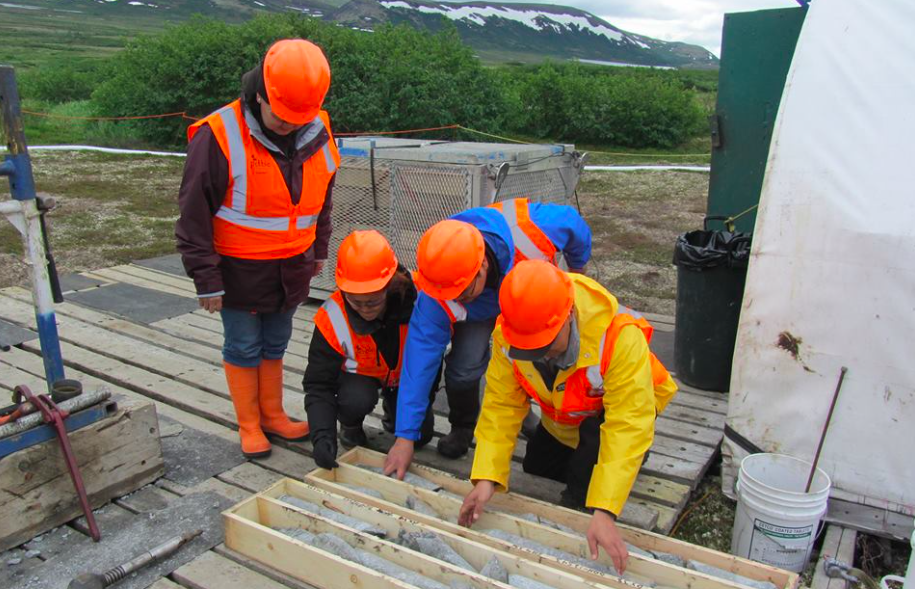The Pebble Project is nothing if not controversial. Even among Native tribes in the region where the copper and gold mining venture is being considered.
In January, several Northwest tribes signed a “Bristol Bay Proclamation” demanding that the U.S. government halt the permitting process for the Pebble Mine in Southwest Alaska.
Also signing the proclamation was Fawn Sharp, who is the president of the National Congress of American Indians.
Now, a letter from another group of Alaska tribes says they are actually supportive of the permitting process. Their letter, sent to President Sharp, objected to the proclamation opposing mineral development near their lands, and asked for consultation in the future before she takes such a stance.
“We want you to know of our sincere disappointment and frustration that you have chosen to engage in the Pebble issue without the
courtesy of contacting us,” wrote Brad Angasan, on behalf of Alaska Peninsula Corporation and Lisa Reimer, on behalf of Iliamna Natives Limited.
“Apparently, you have taken information provided to you by others from our region who do not speak for those of us in communities closest to the proposed Pebble Project.
“For years, we have fought to have our voices heard in the debate about whether or not a mine a Pebble should be allowed to proceed through the permitting process and for years we have had to put up with organizations from outside Alaska taking positions without affording us the basic courtesy of hearing our views about this issue,” the tribal leaders wrote.
“The fact that our colleagues in the indigenous community would take an action against us without consultation is particularly disappointing. We have been engaged in the Pebble issue for nearly fifteen years. We have concerns about a mine near our communities, yet we also have concerns about the significant lack of economic opportunity for our people. We have put up with so-called regional and tribal organizations that tell the world that they speak with a united voice on the Pebble issue. Let us be clear – this is simply not the case,” the letter continued.
The letter acknowledges the permitting process has not been perfect, but also notes the people of the region have benefited from the exploration and environmental studies, and many have worked for the project or subcontractors to the project. That economic development is a welcome opportunity for their communities, where there are few jobs.
“We have taken it upon ourselves to learn about mining and to be informed about the range of issues we should be focusing our attention upon. We are participating in the federal NEPA review process to learn and to be heard. We want to know if a mine can be developed while protecting the salmon and subsistence resources that are important to our people. We also want a seat at the table with the proponent to ensure our voices are heard,” the tribes wrote.
“The economic and infrastructure opportunities generated by a mine at Pebble could be life changing for many in our communities. We have very few year-round job opportunities in our communities.
“Most do not participate in the commercial fishing industry that largely benefits coastal communities in other parts of our region. The cost of living in our communities is staggeringly high. We cannot afford to let an opportunity like Pebble pass us by without fully evaluating it. To do anything less would be irresponsible,”
The letter requests the president of NCAI to contact the tribal leaders and consult with them in the future before signing proclamations that impact their land and their economy.
NCAI is in the middle of its winter meeting in Washington, D.C. Among speakers on the agenda are Tara Sweeney, head of Bureau of Indian Affairs, and Congressman Don Young.
